The Highlands
tanzania
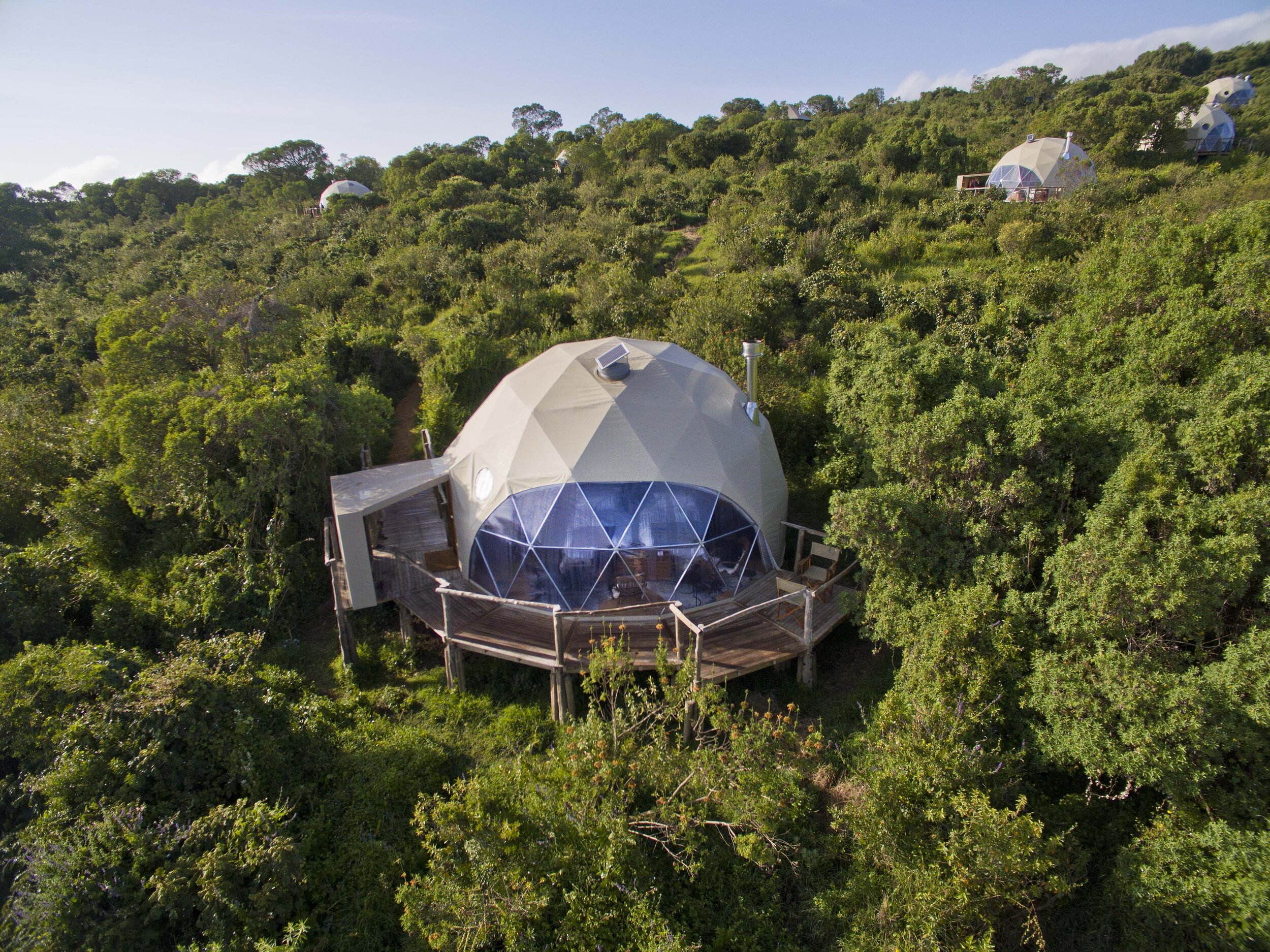

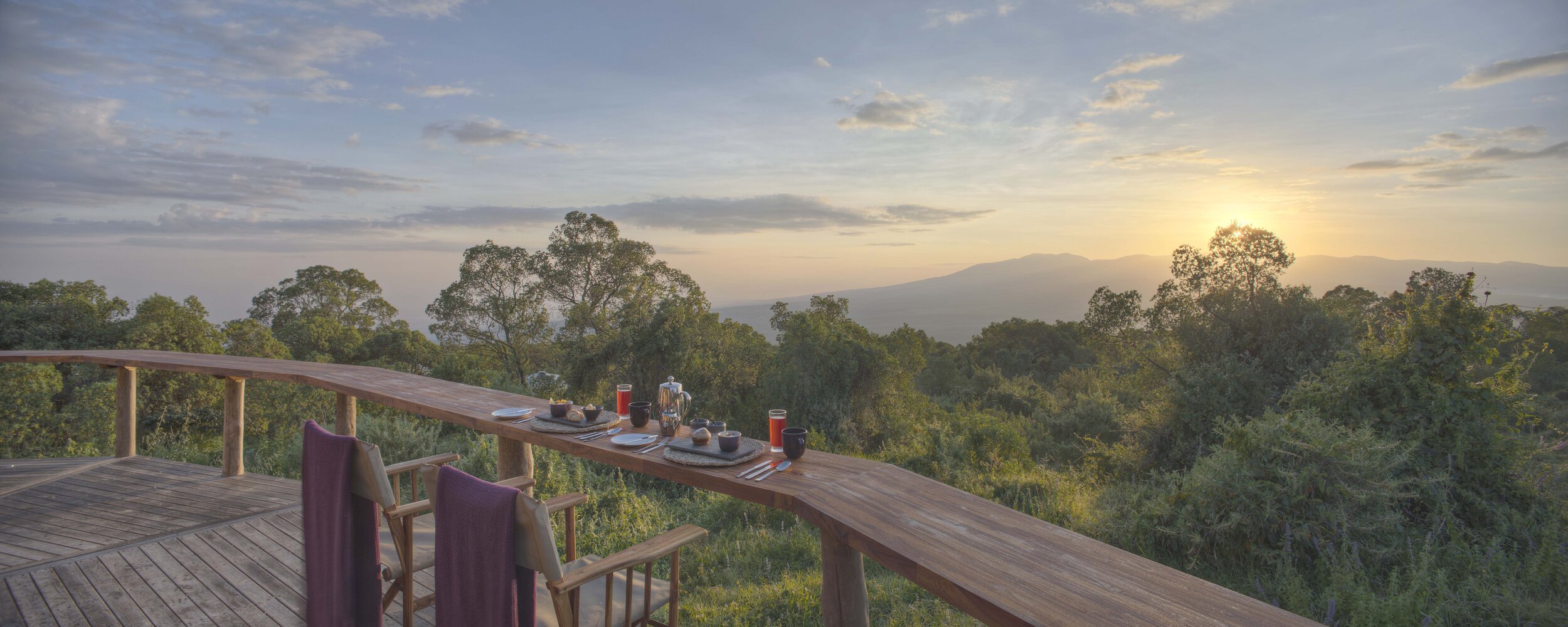
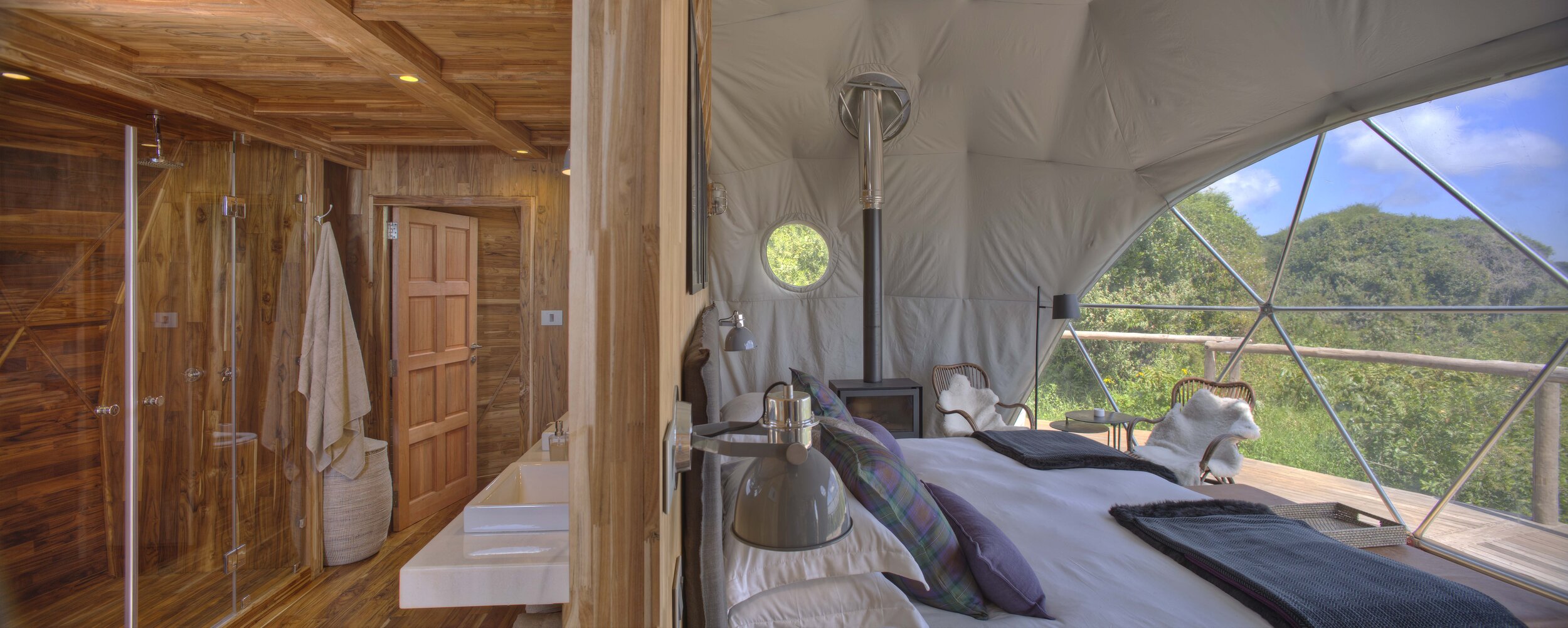

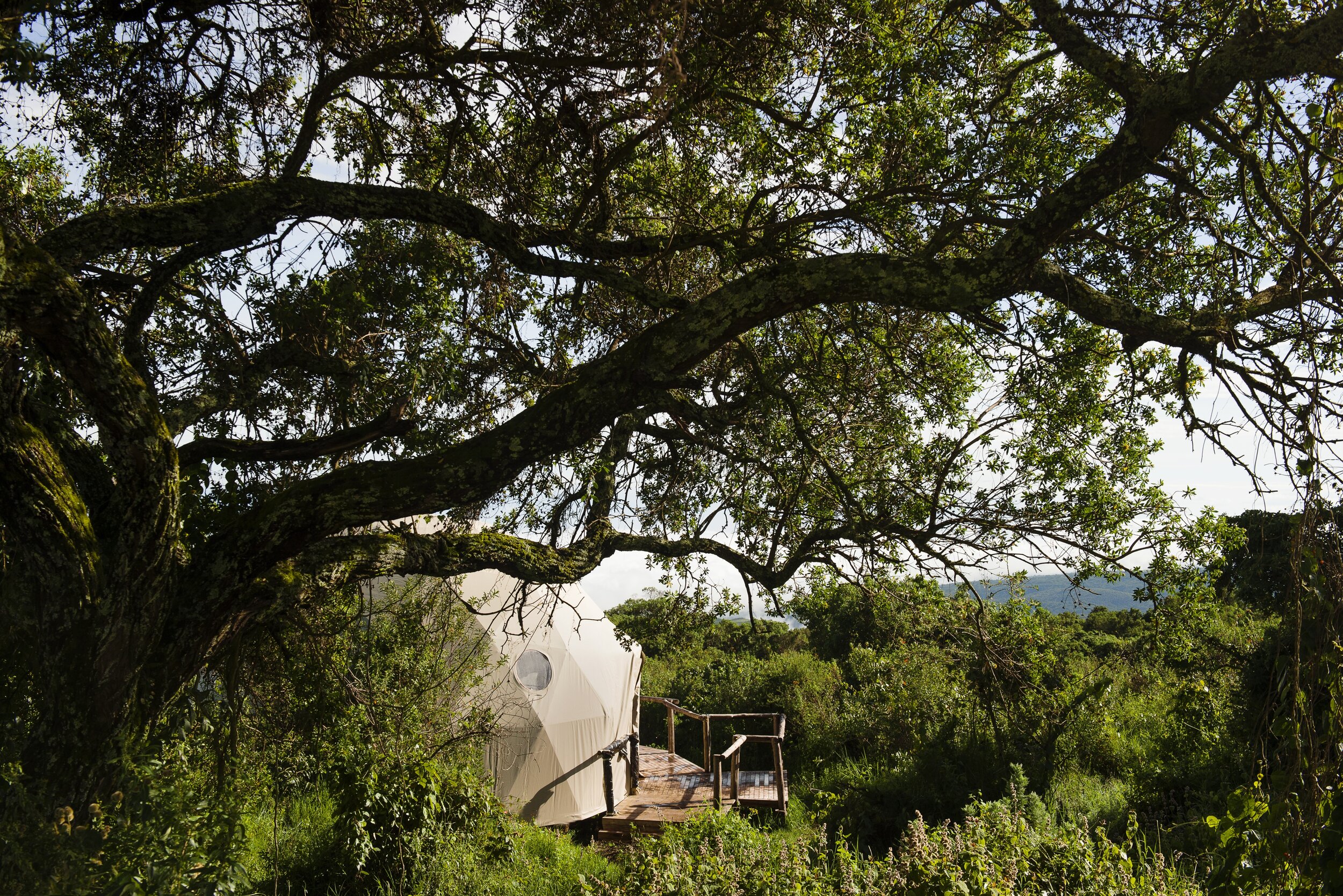
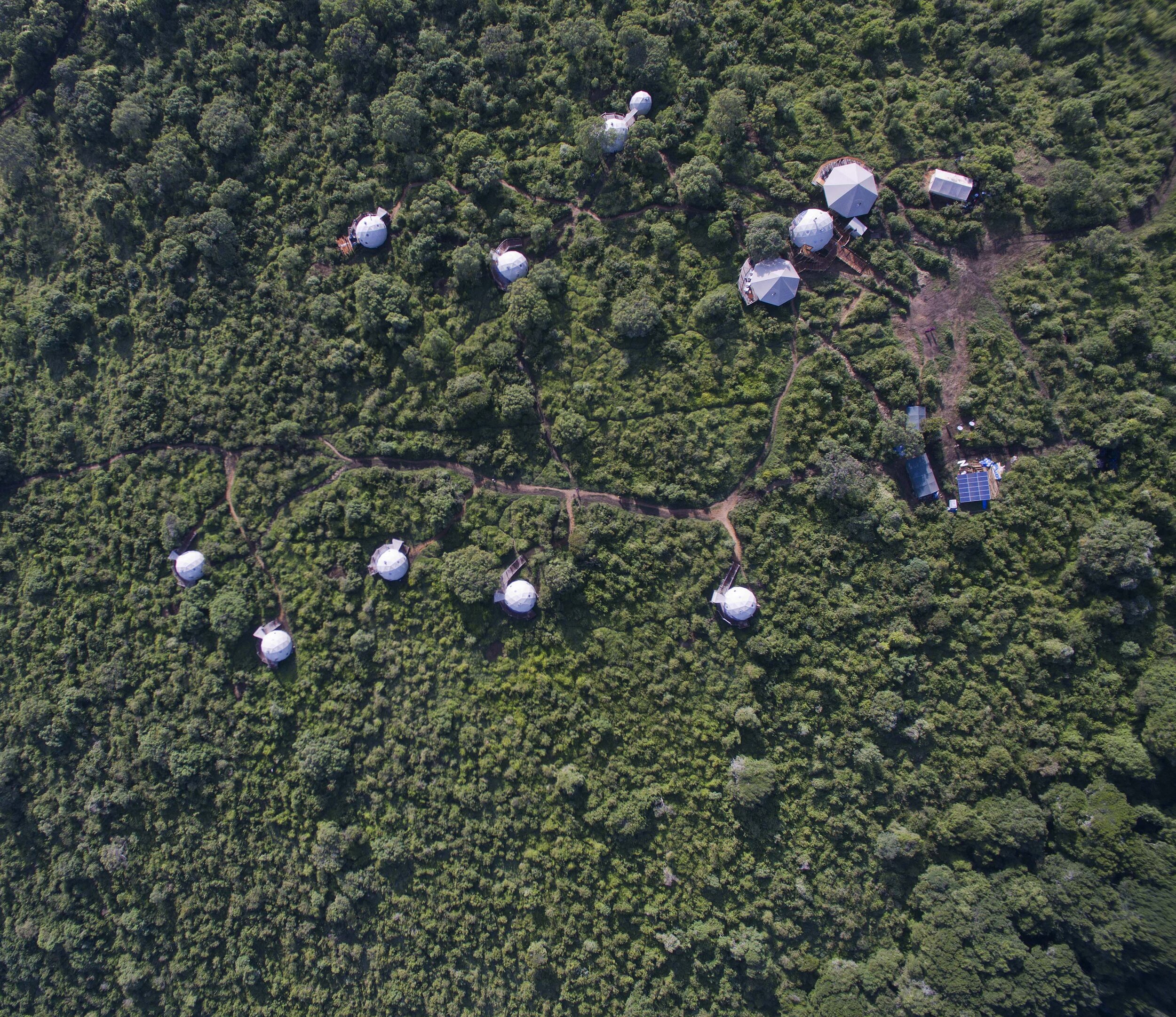
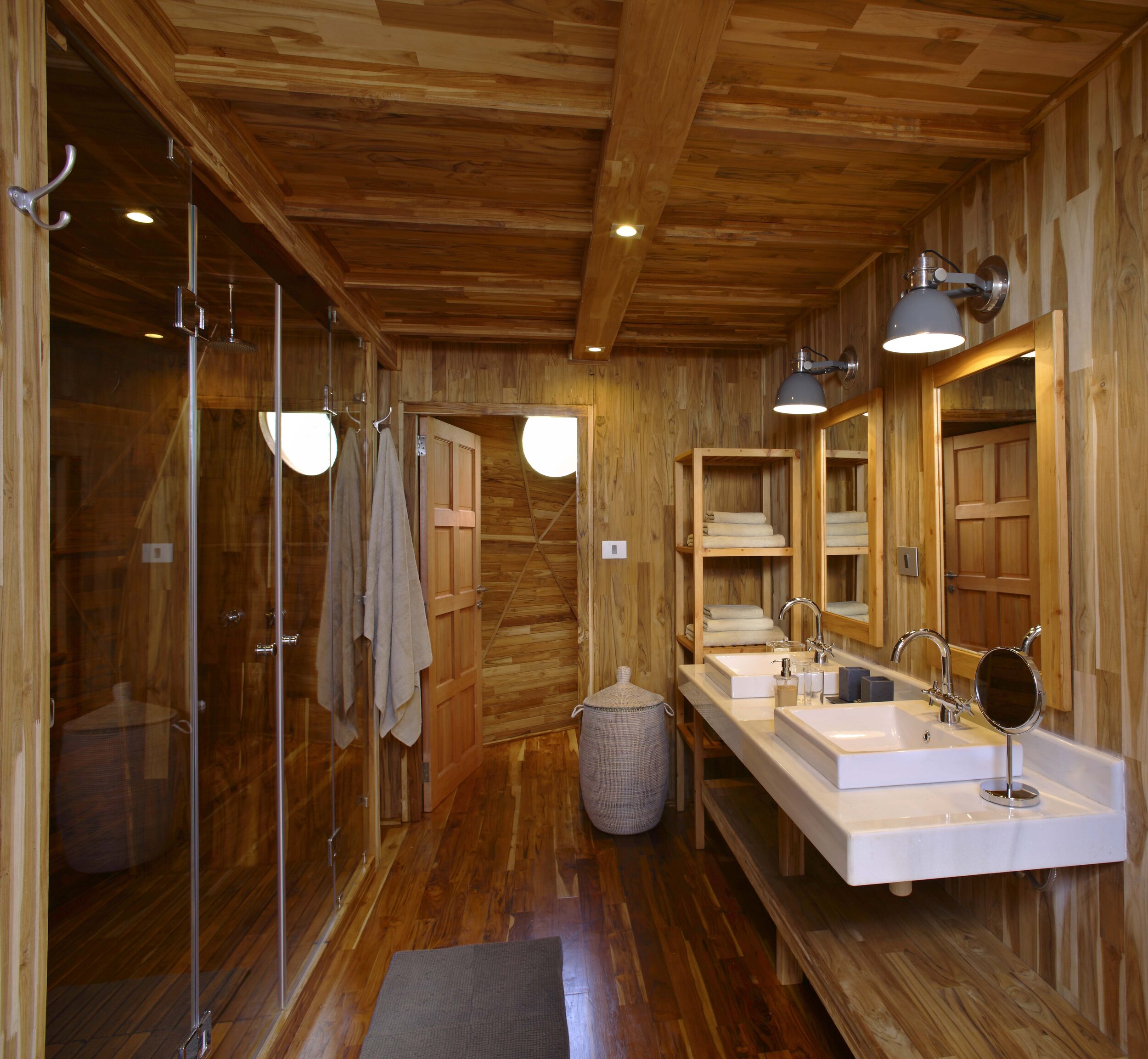
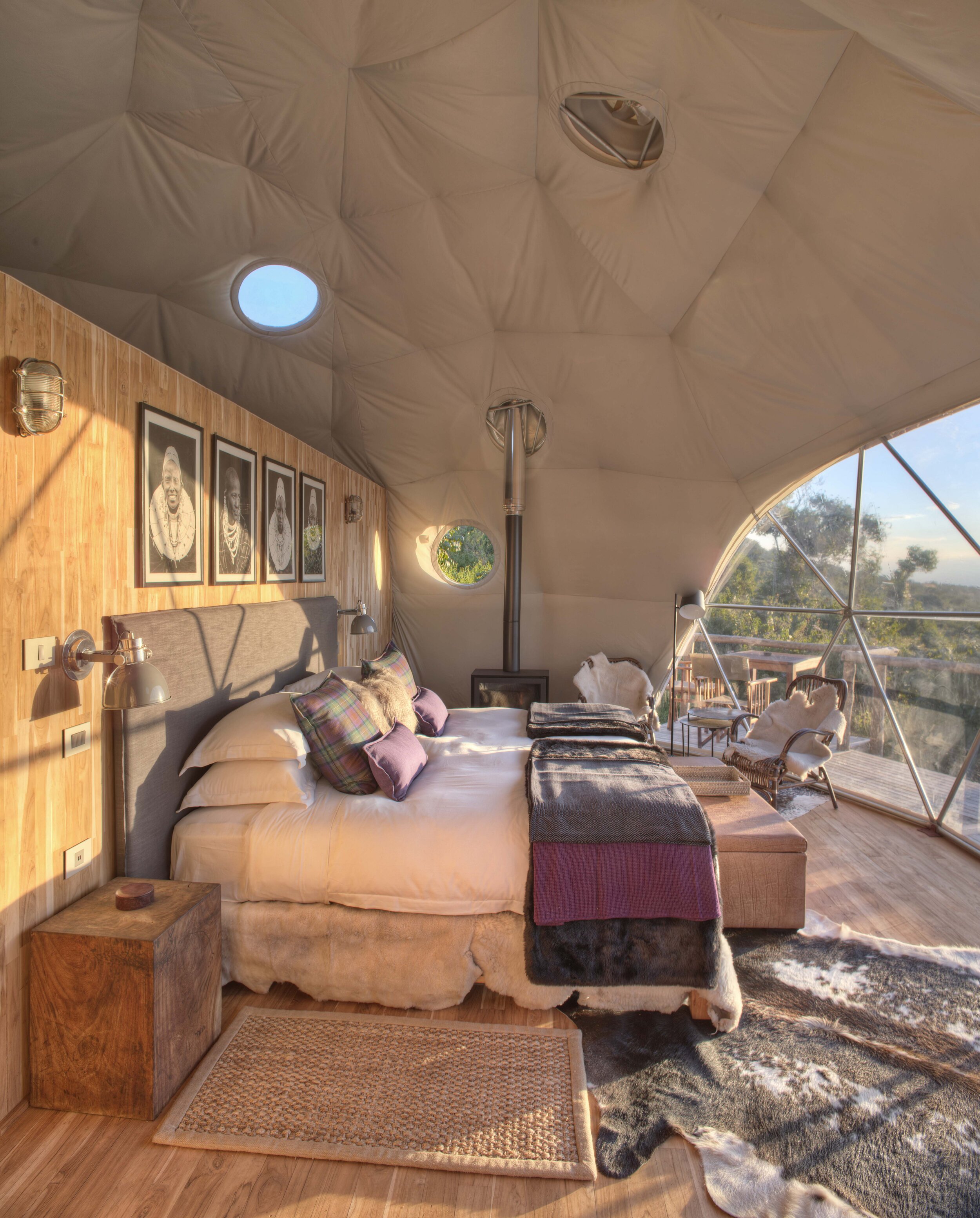
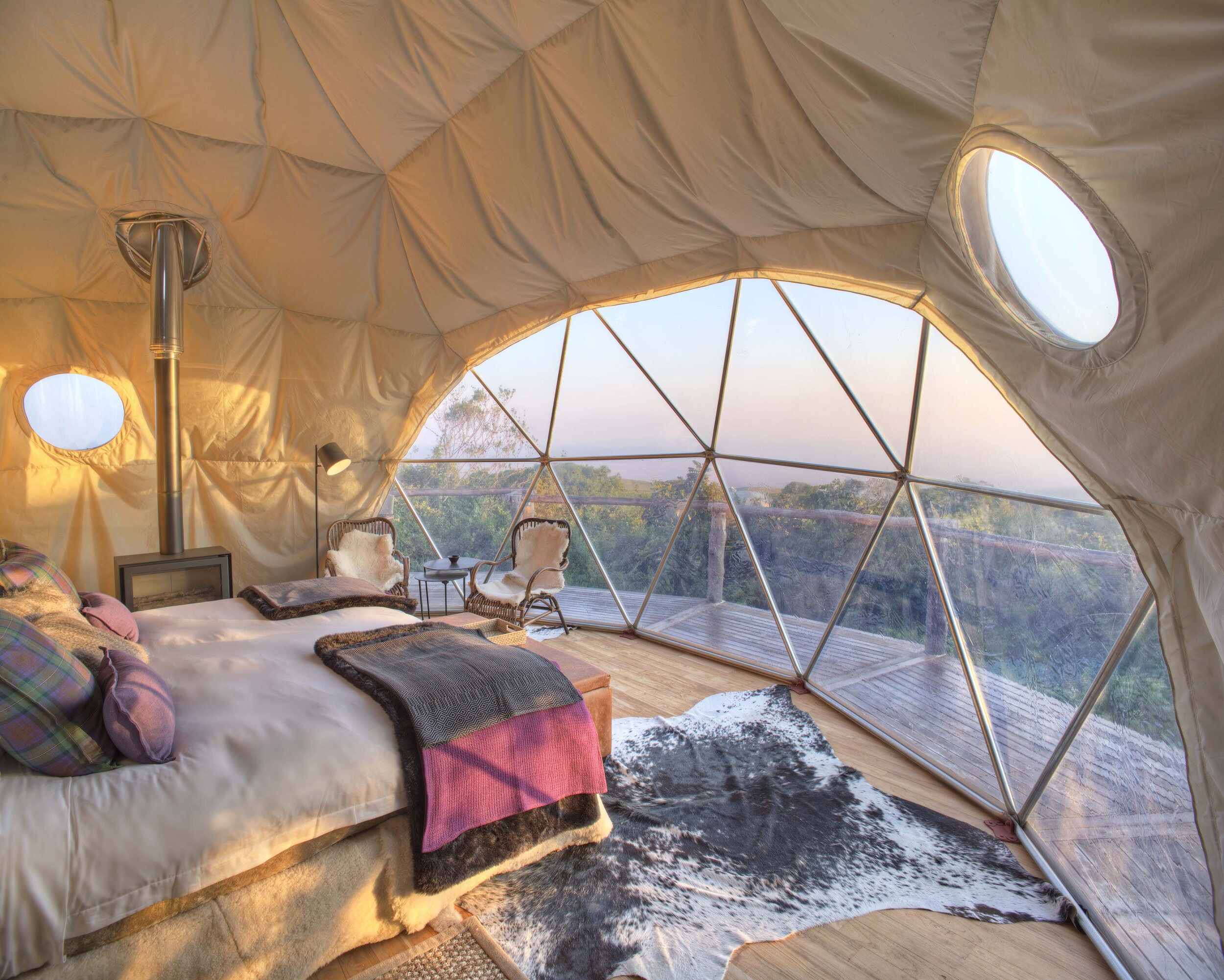
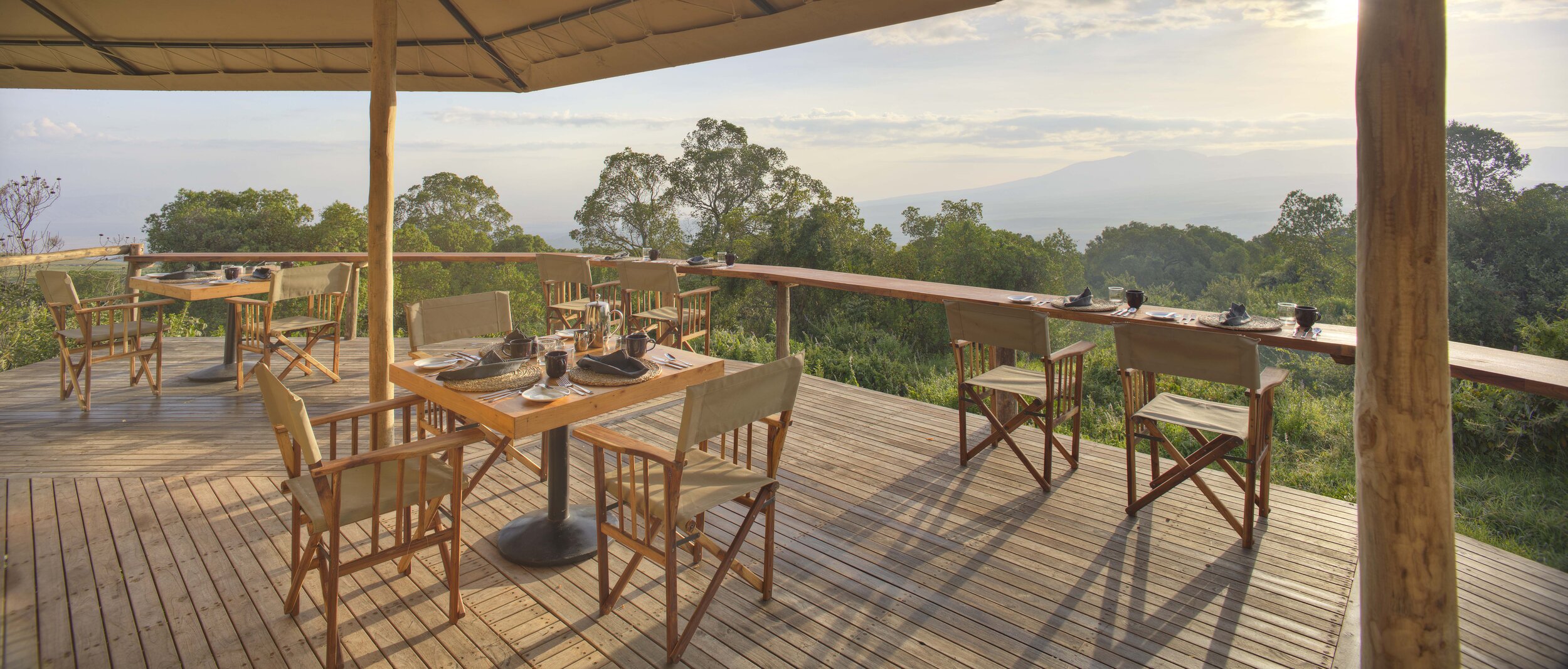
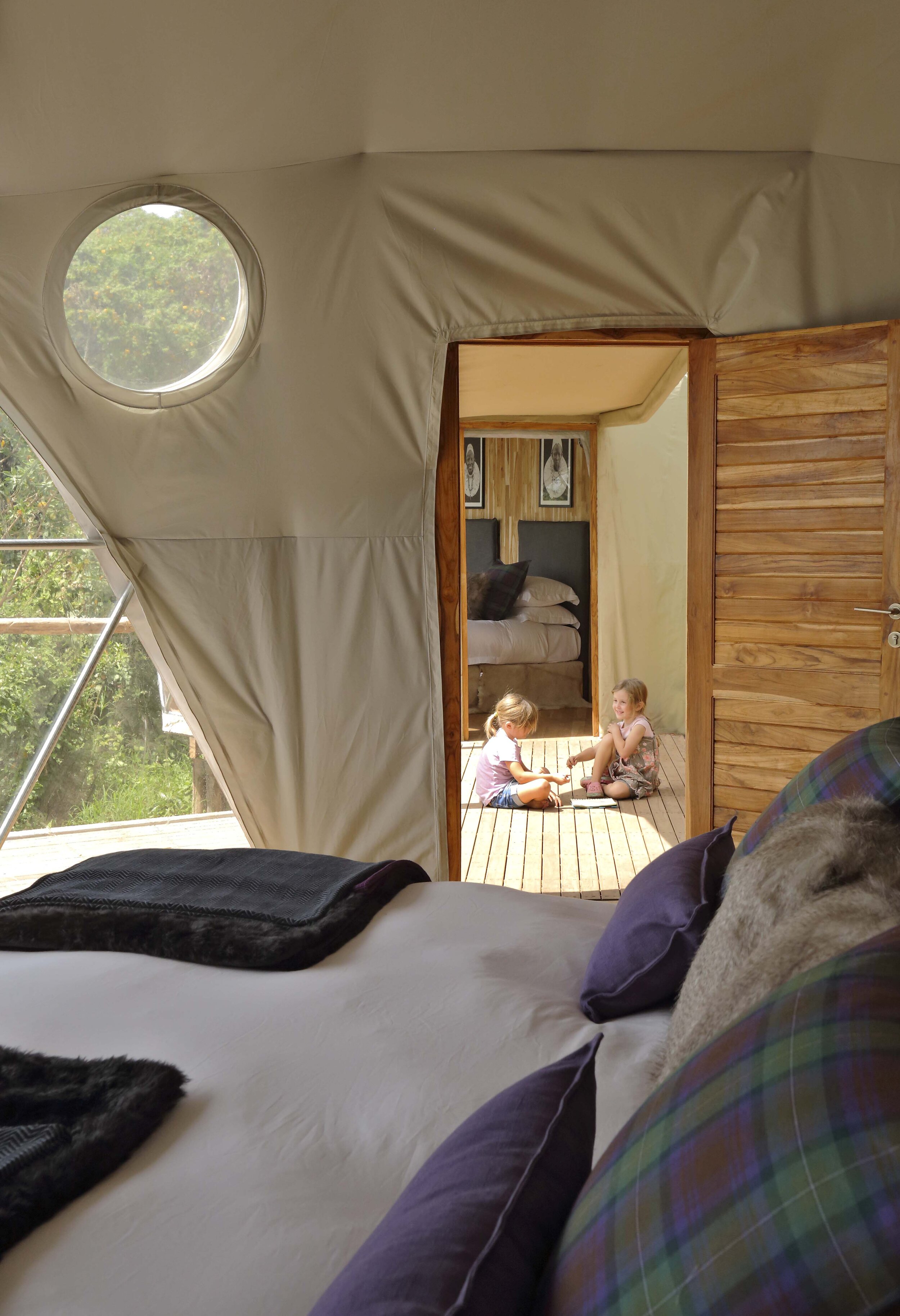
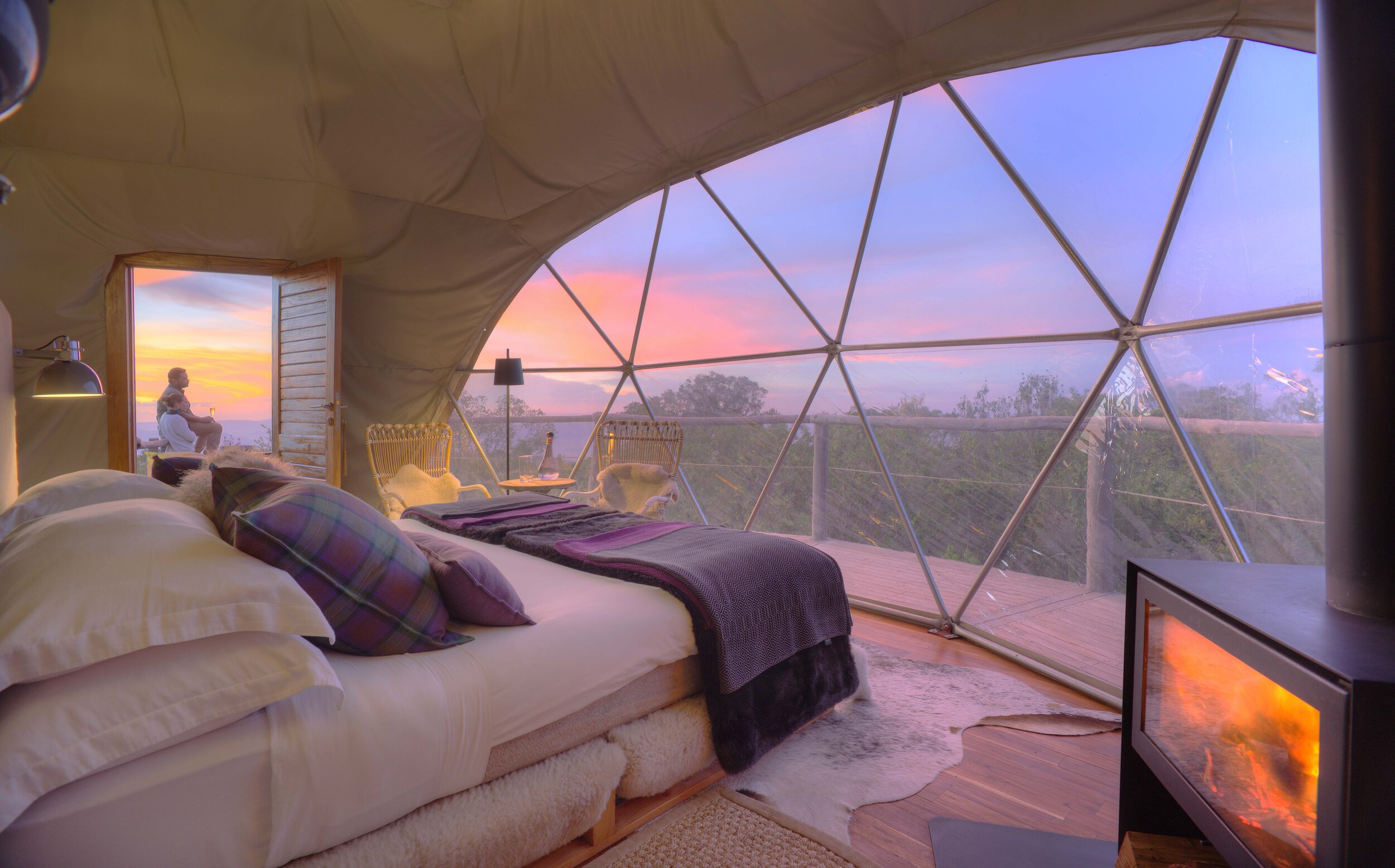
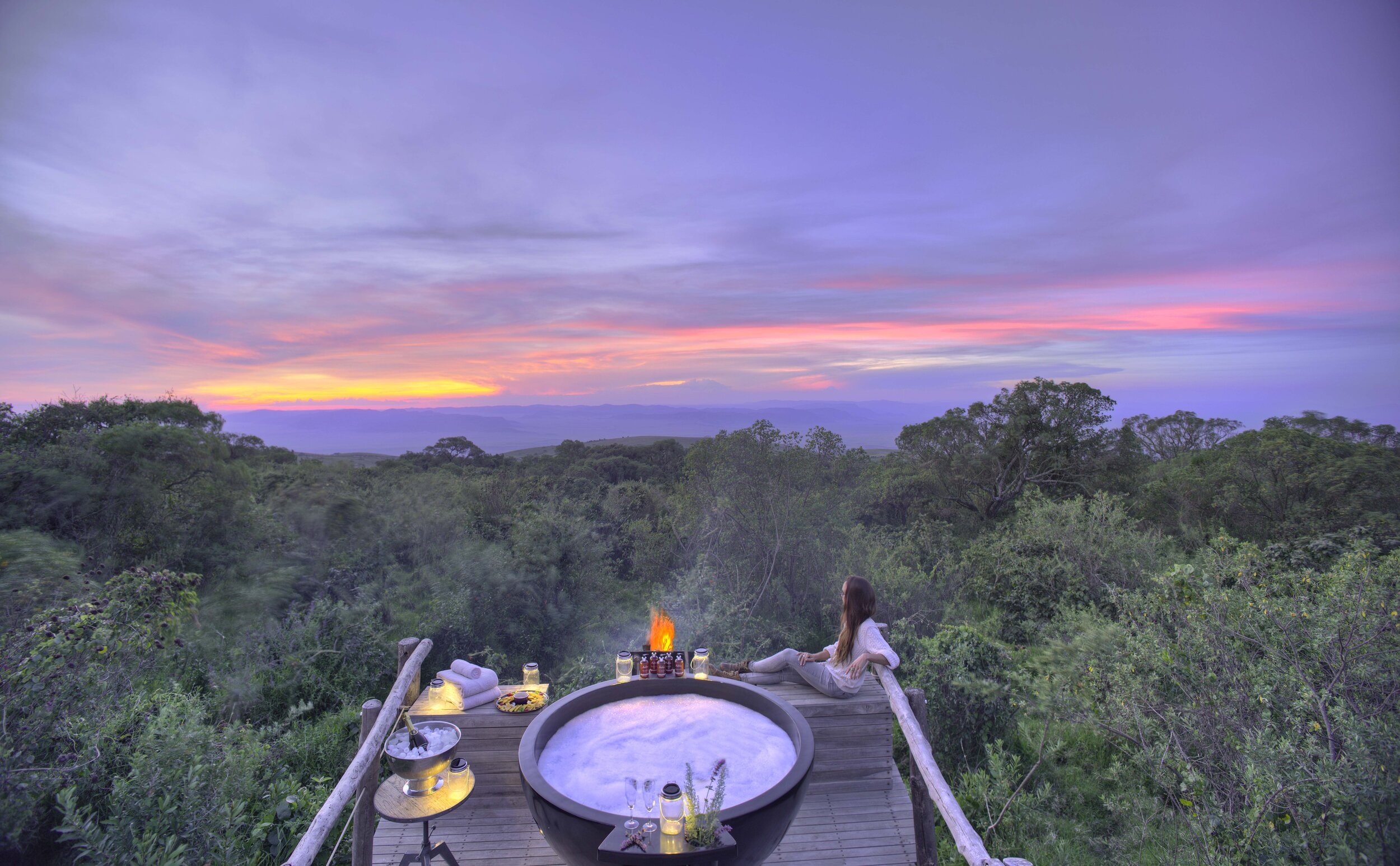

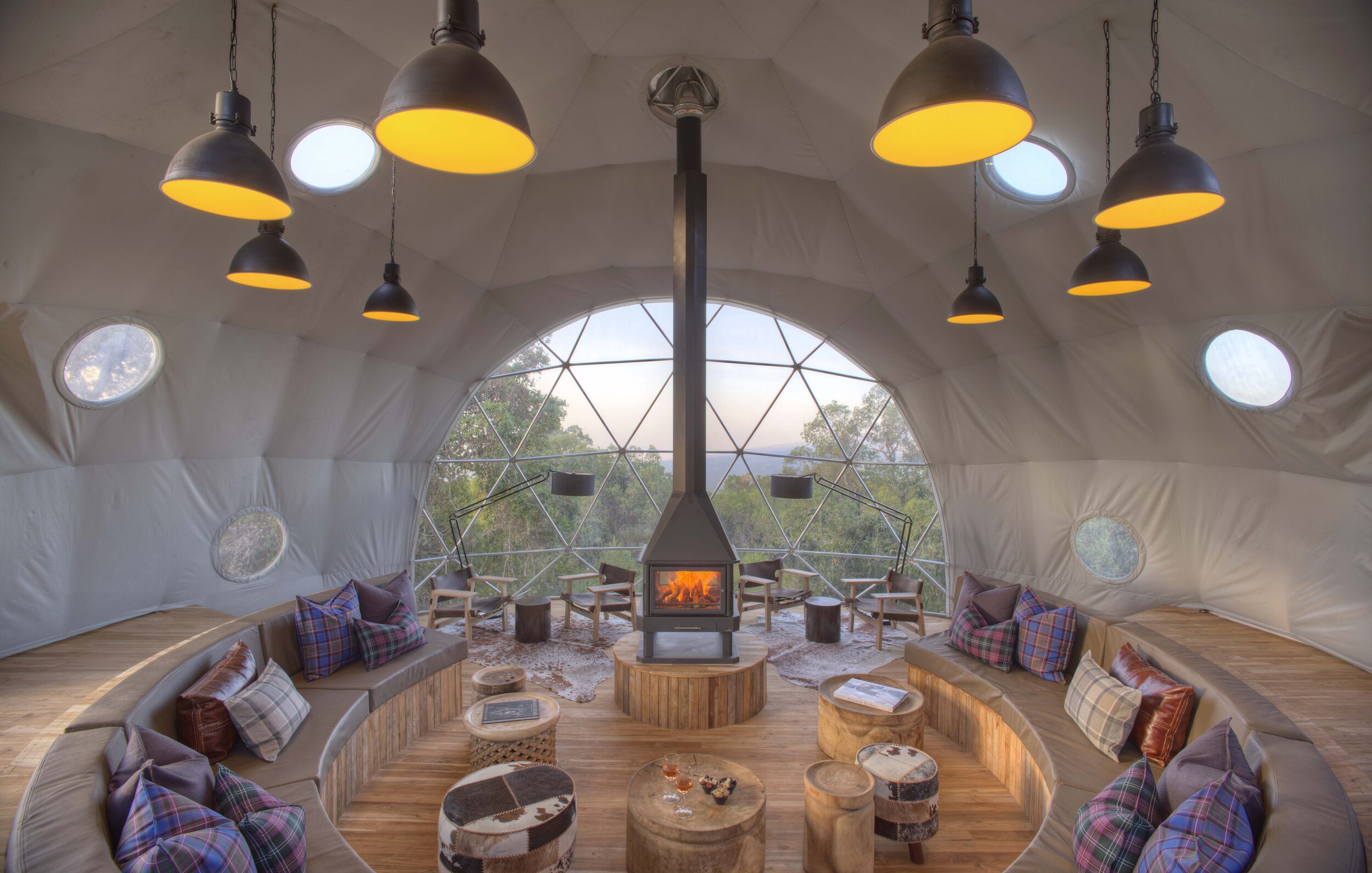
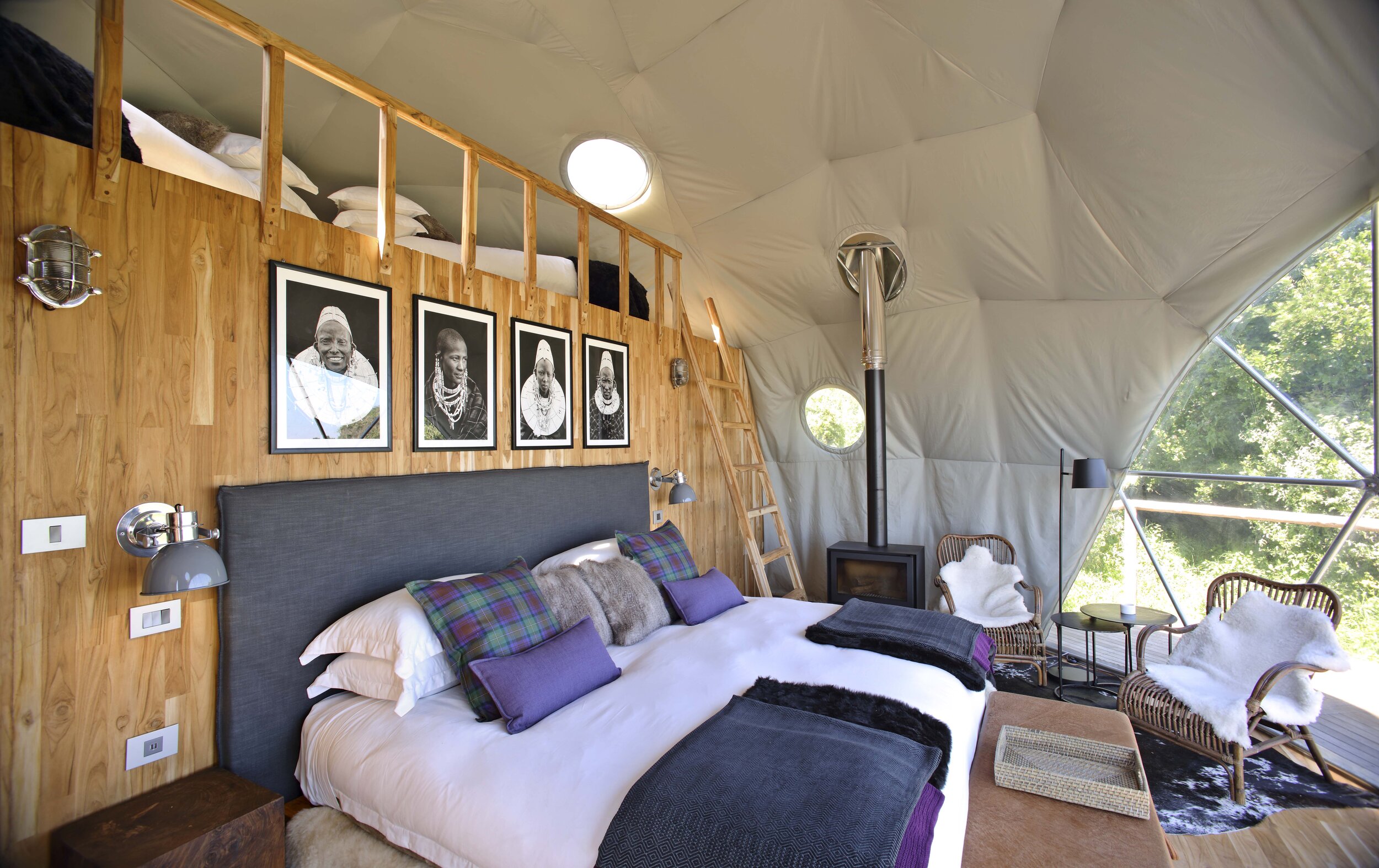
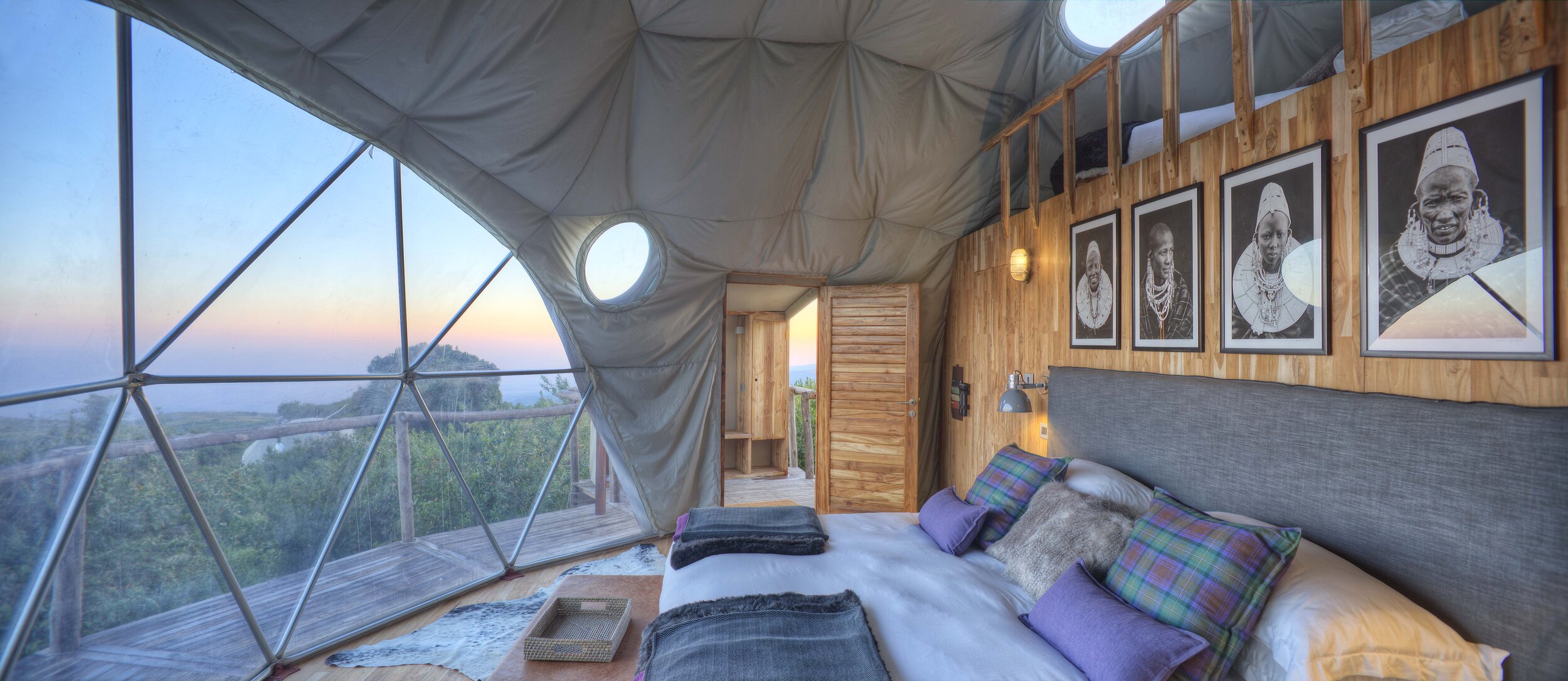
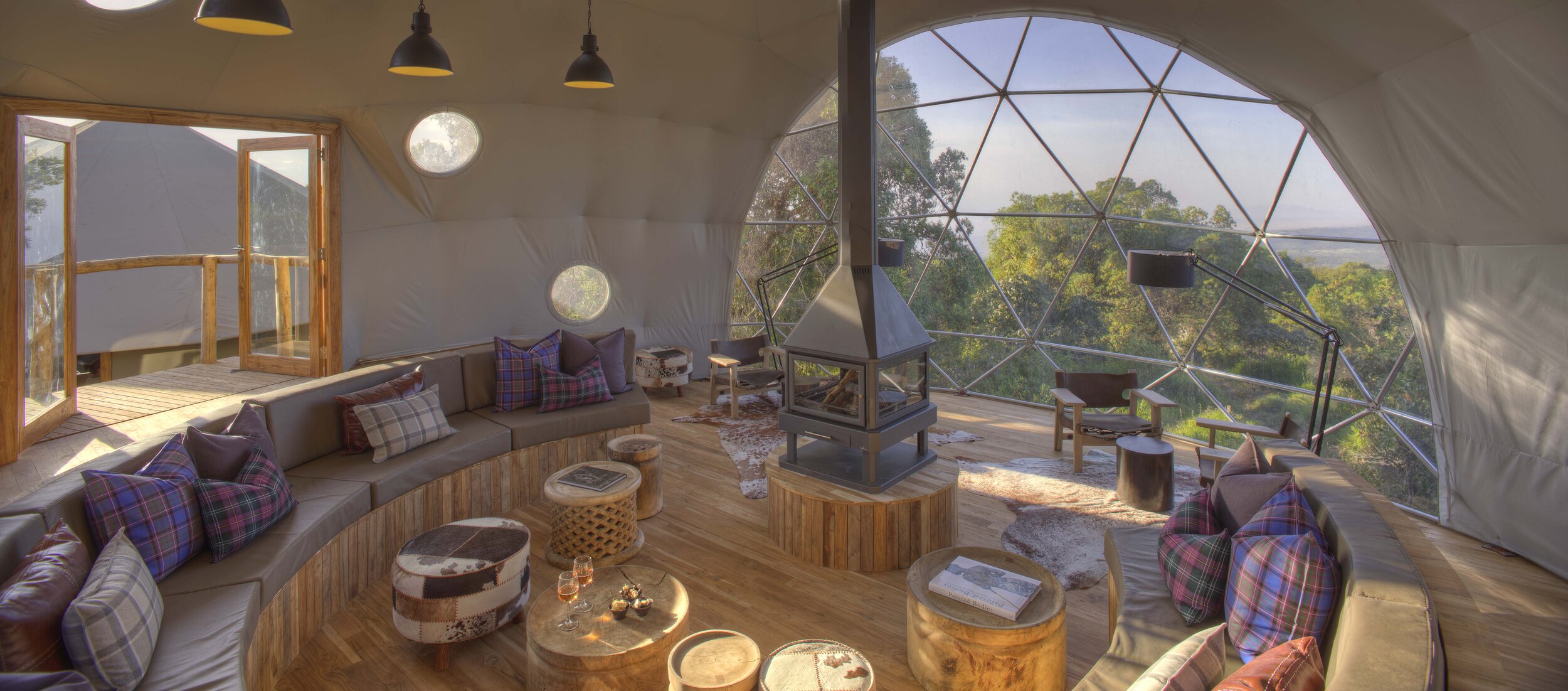
PERSONALITIES
Wildlife lovers. Photographers.
MOMENTS
Surreal views. Thousands of pink flamingos. Picnic breaks. Crackling fireplace. Stargazing from your bed.
BEST VISITING MONTHS
June to September is the dry season. Ngorongoro Crater is at a higher altitude than the Conservation Area, with the temperatures dropping to freezing at night.
COST
WHY STAY
The Highlands is an award-winning camp on the outskirts of Olmoti Volcano, in the Ngorongoro Conservation Area (NCA), a UNESCO World Heritage Site in Tanzania.
The camp consists of eight glass-and-canvas geodesic dome tents, with floor-to-ceiling windows and a deck with unparalleled views across the Serengeti and the surrounding mountainous forests and grassy plains. The design is inspired by traditional Maasai bomas, and includes wood-burning stoves to keep warm during the cooler nights. Take advantage of the Highlands’ unique location where you can watch both the sunrise and the sunset.
WHY WANDER
Explore the Ngorongoro Crater, the largest inactive caldera in the world, as well as one of the best places for wildlife viewing in Africa. Hike up the Olmoti Volcano to be rewarded with views of the crater below and the surrounding landscape. Take a day trip to the soda lake in the Empakaai Crater, where you can find flocks of pink flamingoes. Learn about Maasai culture but interacting with the local community.
INDULGE IN
Remote picnics. Sundowners by the fire. Three-course dinners made with fresh ingredients from the Karatu area.
GETTING THERE
Fly into Arusha Airport and arrange a private transfer to the camp, which will take about 3 hours.
GET INVOLVED
Asilia has been carbon neutral as a company since 2009. All of our camps run on solar, we recycle water, reduce plastic use and offset all unavoidable carbon usage. For example, last year offset 1,425 tonnes of CO2 in East Africa. This is the equivalent of taking about 118 mid-sized cars off the roads for one year.
AsiliaGiving is the philanthropic arm of Asilia Africa, one of East Africa’s leading travel companies with a mission to empower crucial wilderness areas in East Africa, benefitting both people and nature. By making bold, and often pioneering investments into ecologically and economically vulnerable areas, they aim to turn these regions into viable conservation economies, benefitting both the local communities as well as the environment.
By collaborating with and funding in-country NGOs that work on everything from vocational school scholarships, women’s income-generating projects, anti-poaching initiatives, wildlife conservation and land rehabilitation, AsiliaGiving is able to ensure measurable change.
By acknowledging that people and nature are inseparable partners, the organization works closely with communities, authorities, NGOs and industry partners to achieve the best possible long-term outcomes for all concerned. With the help of guest donations and conservation fees Asilia is able to make a significant Positive Impact towards their goal to empower these areas and the communities and wildlife that call them home.
Find out more at asiliagiving.org
Initiatives supported:
Usangu Wetlands. The Usangu wetlands project assesses this critical area to understand how best it can be protected through ecotourism.
Twende Porini. Our Twende Porini programme welcomes children from local communities to experience what a safari is all about and learn about conservation and tourism.
Twende Porini. Our Twende Porini programme welcomes children from local communities to experience what a safari is all about.
Maa Beadwork. Kenya Wildlife Trust & Maa Trust. Our Twende Porini programme welcomes children from local communities to experience what a safari is all about and learn about conservation and tourism.
FGM Education. The Maa Trust. Female Genital Mutilation is a traditional practice that is prohibited yet still carried out in local communities. Together with anti-FGM ambassadors, The Maa Trust has implemented education programs.
Maa Honey. The Maa Trust. Maa Honey combines the conservation of African bees with the need for sustainable income generation. Beehives are owned by a group of local women who harvest and bottle the honey
Youth Empowerment. The Maa Trust Through this programme, The Maa Trust offers career guidance and scholarships to the youth in the Mara.
Mau Eburu Forest Project, Mount Kenya And Abedare Fencing Projects
Rhino Ark. Rhino Ark develops and implements practical solutions to the challenges affecting Kenya’s mountain forests, Mount Kenya, The Abedares and Mau/Eburu Forests.
Mara Predator Conservation Programme. Kenya Wildlife Trust. The Mara Predator Conservation Programme’s efforts span three primary areas with robust carnivore populations in Kenya – The Greater Mara, Amboseli/Tsavo, and Laikipia/Samburu.
Elephant Research, Wildlife Conflict Mitigation
Pardamat Conservation Area (PCA). Masai Mara Wildlife Conservancies Association (MMWCA). The Wildlife Tourism College of Maasai Mara was started out of necessity to expand the current Koiyaki Guiding School.
The Lionscape Coalition is a new initiative of the Lion Recovery Fund. It enables Africa’s top tourism operators to take action in the recovery of lion populations and their landscapes
The Ngorongoro Human-Wildlife Conflict Project aims to reduce livestock predation by carnivores and the retaliatory killing of carnivores.
The Tarangire-Manyara ecosystem harbours one of the major lion populations remaining on the African continent.
Simanjiro Easement Project. Dorobo Fund. Critical grazing areas for wildlife are quickly disappearing in Tarangire which has resulted in a severe decline in wildlife numbers and an increase in pressures on Maasai livelihoods
The Southern Tanzania Elephant Project is an elephant conservation programme that aims to protect elephants and enhance human-elephant coexistence.
The Serengeti Cheetah Project monitors changes in birth and survival rates of cheetahs
Frankfurt Zoological Society. The Eastern Serengeti Livestock Encroachment Unit aims to protect vital wilderness areas and create sustainable practices to ensure these areas are continuously monitored and cared for.
Chimpanzee Habituation Project. Honeyguide Foundation. The unique Chimpanzee Habituation Project on Rubondo Island focuses on introducing the current group of chimpanzees to the presence of humans
K9 Unit. Honeyguide Foundation. Honeyguide’s K9 Unit is the only unit of its kind in the field of anti-poaching in Tanzania. Specially trained dogs are used to track and capture poachers in several regions across Tanzania.
Asilia Scholarship Fund. Asilia Trust. Every year, Asilia identifies promising students who don’t have the means to further their education and supports them with scholarships to do so.
*Images property of The Highlands


